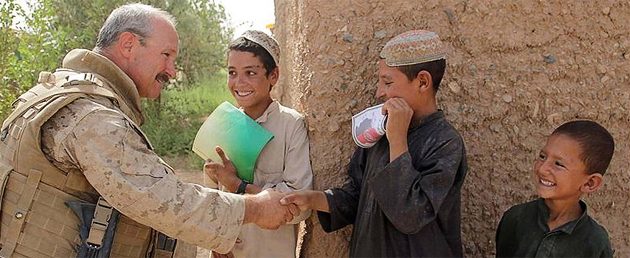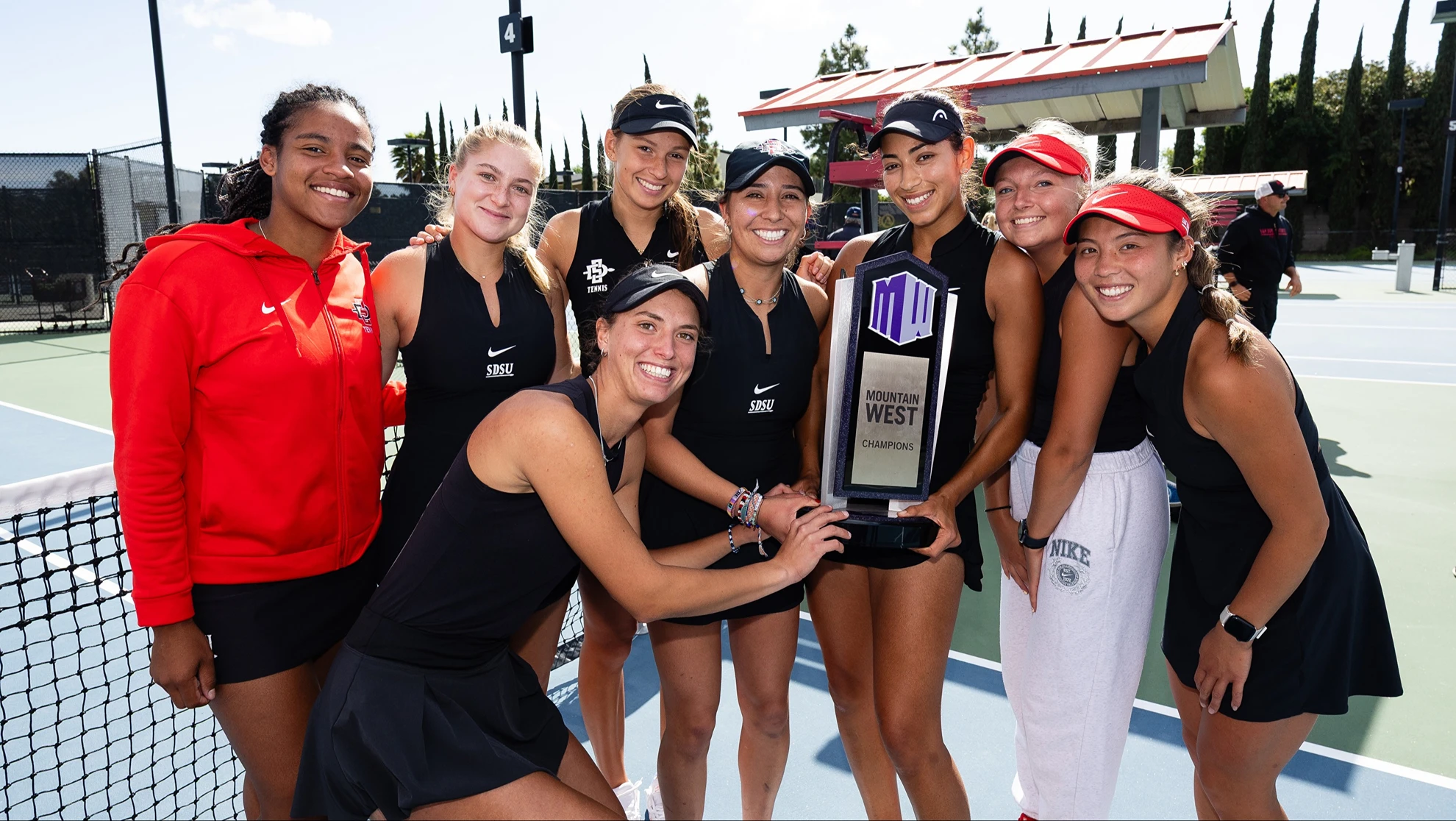Language Programs for Marines Get $1.8M Grant
SDSUs Language Acquisition Resource Center is one of five nationally to receive the Department of Defense award.

A $1.8 million Department of Defense grant will help a San Diego State program train nearly 200 additional U.S. Marines in critical languages spoken throughout the Middle East.
One of five awards
The one-year grant is one of five awarded nationwide and will assure the availability of high-quality, pre-deployment language and culture training courses for Marines in critical languages such as Pashto, Farsi and Arabic that are spoken in Afghanistan, Pakistan, Iran and other Middle East countries where there is current military activity.
San Diego County Congresswoman Susan Davis, ranking member of the Military Personnel Subcommittee, was the primary author of the grant authorization language.
“SDSU’s program offers a substantial opportunity to advance DOD’s critical language and cultural training objectives,” Davis said.
“In San Diego, this means providing men and women in uniform with the language skills to succeed when they are deployed, especially in Afghanistan. This training is a critical component of our overall readiness and I applaud SDSU’s efforts in preparing our service members for their mission.”
Training Marines
The courses will be offered through SDSU’s Language Acquisition Resource Center, under the leadership of professor Mary Ann Lyman-Hager. The center has provided training to more than 2,000 active-duty and reserve Marines since 2006. The new funding will train nearly 200 additional Marines over the next year.
Students enrolled in the eight-week course attend SDSU full-time and become proficient in speaking, listening and reading in Pashto to American Council on the Teaching for Foreign Language proficiency level of 0+ to 1.
Marines in the program also have the option of earning up to six units of undergraduate college credit, often inspiring them to seek additional higher education opportunities either during or after their service, said Chris Brown, associate director of the center.
“For many of our students who complete these courses as part of their military training, this is an eye-opening experience into the world of a college student,” Brown said.
The SDSU Language Acquisition Resource Center demonstrates the global impact of SDSU, a key initiative of the Campaign for SDSU. Whether it’s the university’s Fulbright scholars, its study abroad opportunities or the international research of its faculty members, SDSU competes on an international level. Learn more about SDSU's global impact and how you can help.Fiscal 'life preserver'
Because of budget reductions from the Department of Education, Lyman-Hager calls this grant a "life preserver" for the program.
“Without this funding, we would not have been able to support programs at the capacity we are now, which is critical to our national security and military efforts,” Lyman-Hagar said.
One example of the program’s impact is in the training of a special envoy of female Marines deployed to Afghanistan called the Female Engagement Team.
Because of cultural traditions and boundaries, male service members are not allowed to interact with local women, so it is crucial that the Female Engagement Team have the language skills and cultural background needed to successfully interact with Afghani women in the field.
The SDSU Language Acquisition Resource Center, one of 15 Department of Education Title VI-funded Language Resource Centers, specializes in teaching “less commonly taught languages,” as well as developing materials, curriculum and training language teachers. The Language Resource Centers were established by Congress in 1989 to improve the teaching and learning of foreign and second languages in the United States.
Support SDSU's Language Acquisition Resource Center





